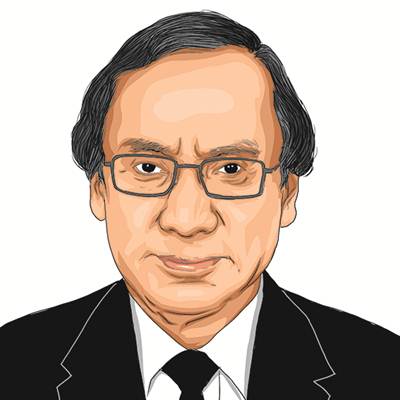Opinion Changing Myanmar
Indias policy needs to evolve,factoring in the emerging realignments
Indias policy needs to evolve,factoring in the emerging realignments
In the fascinating drama of by-elections held in Myanmar,there was only one protagonist who mattered Aung San Suu Kyi. Riding on her charisma and aura created by lineage,suffering and sacrifice,her party,the National League for Democracy (NLD),secured 43 of 45 vacant seats in the parliament. The Lady,as she is often referred to,has expressed the hope that this marks the beginning of a new era.
In the past 22 years,during which the Indian electorate voted many times,the people of Myanmar had only two such occasions. In 1990,they gave an overwhelming victory to the NLD,but the military,ignoring the peoples verdict,continued its oppressive rule. In 2010,flawed elections,boycotted by the NLD,led to a massive triumph of the military-backed Union Solidarity and Development Party (USDP). The latest round the by-elections in parts of the country have gone decisively in favour of the NLD.
Thus Suu Kyi,eulogised by many as the goddess of democracy and criticised by Myanmars military as the fountain of all its problems,is set to serve as the leader of the opposition. In her new avatar,she will be part of a political system that she is determined to reform from within as well as fight from outside as the countrys leading dissident.
With Myanmar moving forward on the reforms path and with internal power equations changing perceptibly,does Indias Myanmar policy need to change? This crucial question may be receiving close attention in South Block as it prepares for Prime Minister Manmohan Singhs journey to Myanmar in the near future. The visit will undoubtedly be a historic occasion; Rajiv Gandhi was the last prime minister to visit Burma in 1987.
The ministry of external affairs issued a rather routine statement,conveying heartiest congratulations to Suu Kyi and the NLD and hailing the elections as a major milestone. India had sent two senior officials of the election commissions of Assam and Manipur who monitored the polls along with our ambassador. They found elections to be peaceful and smoothly arranged. The statement also reiterated Indias commitment to extending all possible assistance and support to the cause of national reconciliation and to the strengthening of democracy in Myanmar.
This is where the real policy challenge comes in. Queried last week about expectations from India,Suu Kyi said India should do more. On this occasion,she was rather gentle and diplomatic. In the past,she had strongly criticised Indias policy of engagement with the military government. Last July,she said India should be fully rooted in the democratic principles,instead of putting trade and strategic interests in the forefront. She also advocates the view that Indias development assistance should be people-oriented.
The current political transition is increasingly marked by a diffusion of power. While the military continues to be the dominant player,reformist President Thein Sein and the parliament have emerged as significant poles of power too. Within the parliament,despite the dominance of the USDP,Suu Kyis NLD is likely to play an influential role,well beyond its numerical strength of 6 per cent. Therefore,our Myanmar policy needs to evolve,factoring in the emerging realignments. The reform camp,comprising the president,Suu Kyi and others,deserves all our support,even as our creative diplomacy ensures that Indias cooperative ties with the military remain suitably nurtured.
A blend of resilience and dynamism will be required as Myanmars external relations are also poised to change significantly. After a two-decade-long dependence on China in virtually all spheres,Myanmar of late has experienced unusual stress in its relations with the northern neighbour,but they remain close and extensive. Notably,Myanmar now has other options. The US is already easing some sanctions. The EU is bound to follow suit shortly and Asean is vigorously championing the proposal that all Western sanctions on Myanmar should be lifted. But this idea may not win immediate acceptance from Suu Kyi who would prefer to use the removal of sanctions as a lever to accelerate reforms.
PM Singhs visit will be watched for signs of how Delhi relates to power centres,old and new. His likely meeting with Suu Kyi and later her possible visit to India will shed further light. Only then will the next phase of Indias strategy to deepen relations with Myanmar become clearer.
Two suggestions deserve consideration in this regard. Indias trade and investment linkages with Myanmar are far lower than they should be. Trade,in fact,has gone down and investment is not rising fast enough. So something effective needs to be done. Further,while the importance of people-to-people contact is talked about,very little is happening on the ground. This needs to be expanded through a combination of new mechanisms,additional resources and sustained stamina. The full potential of Indias ties with a vital eastern neighbour cannot be realised without involving businesses,artists,scholars and civil society.
Above all,it is important to remember the significance of Myanmar in the implementation of Indias Look East Policy.
The writer is a former ambassador to Myanmar
express@expressindia.com


